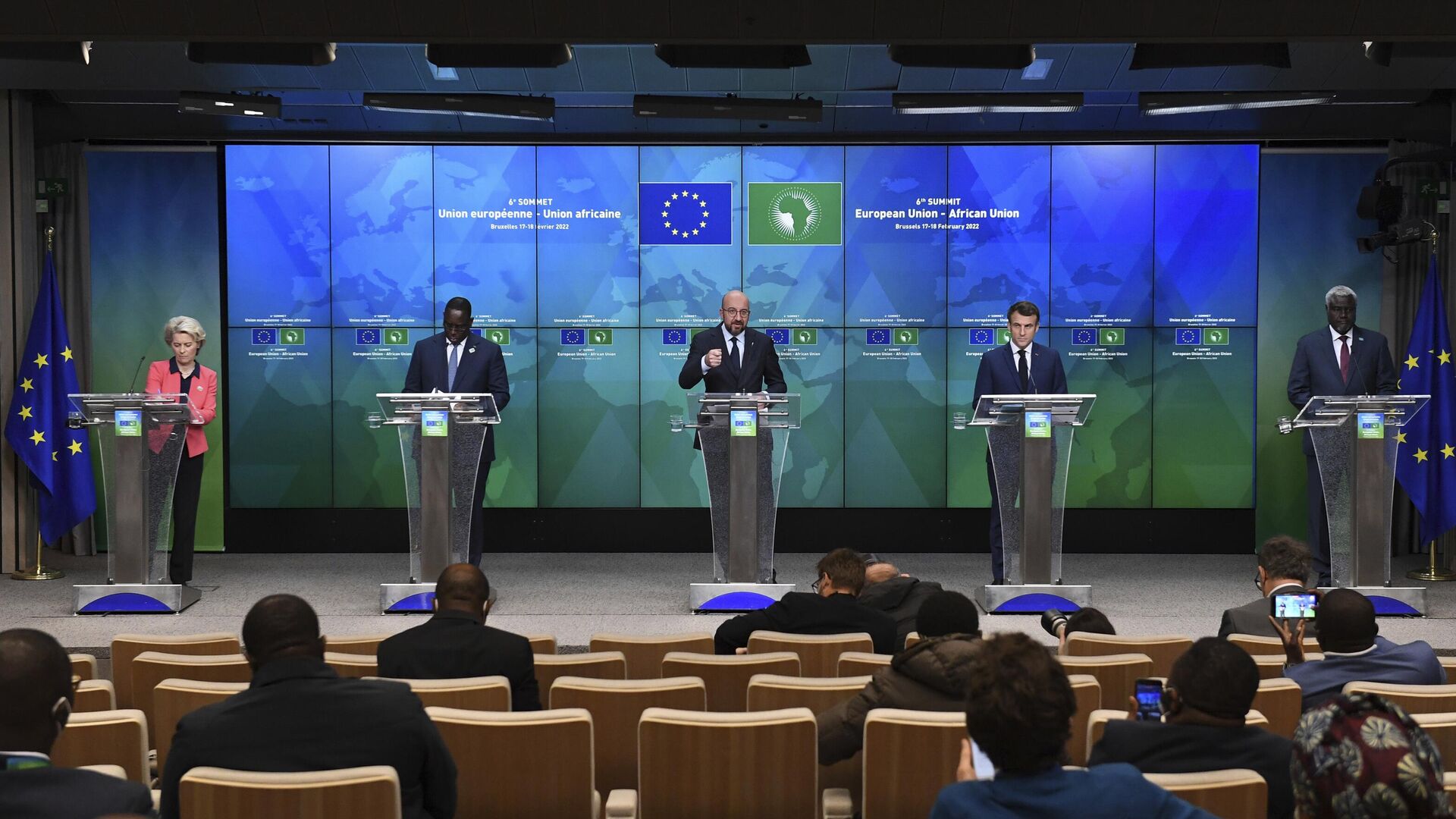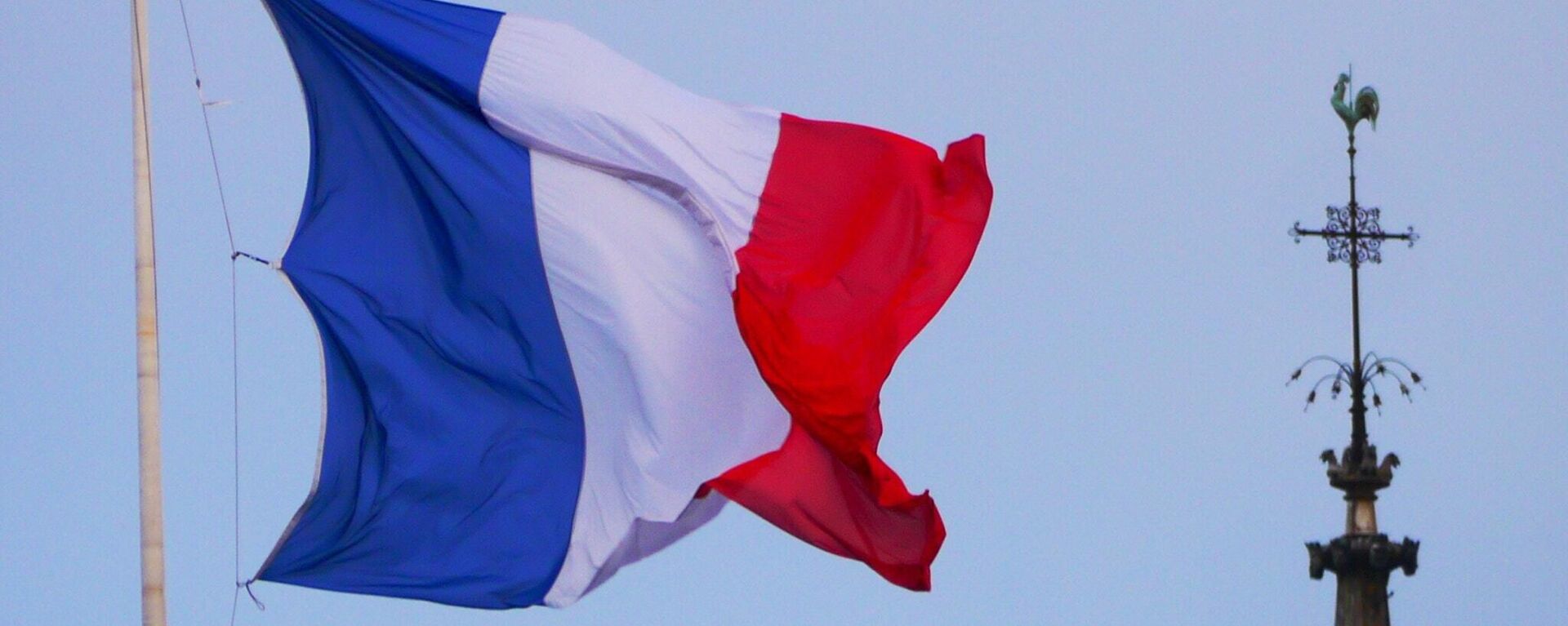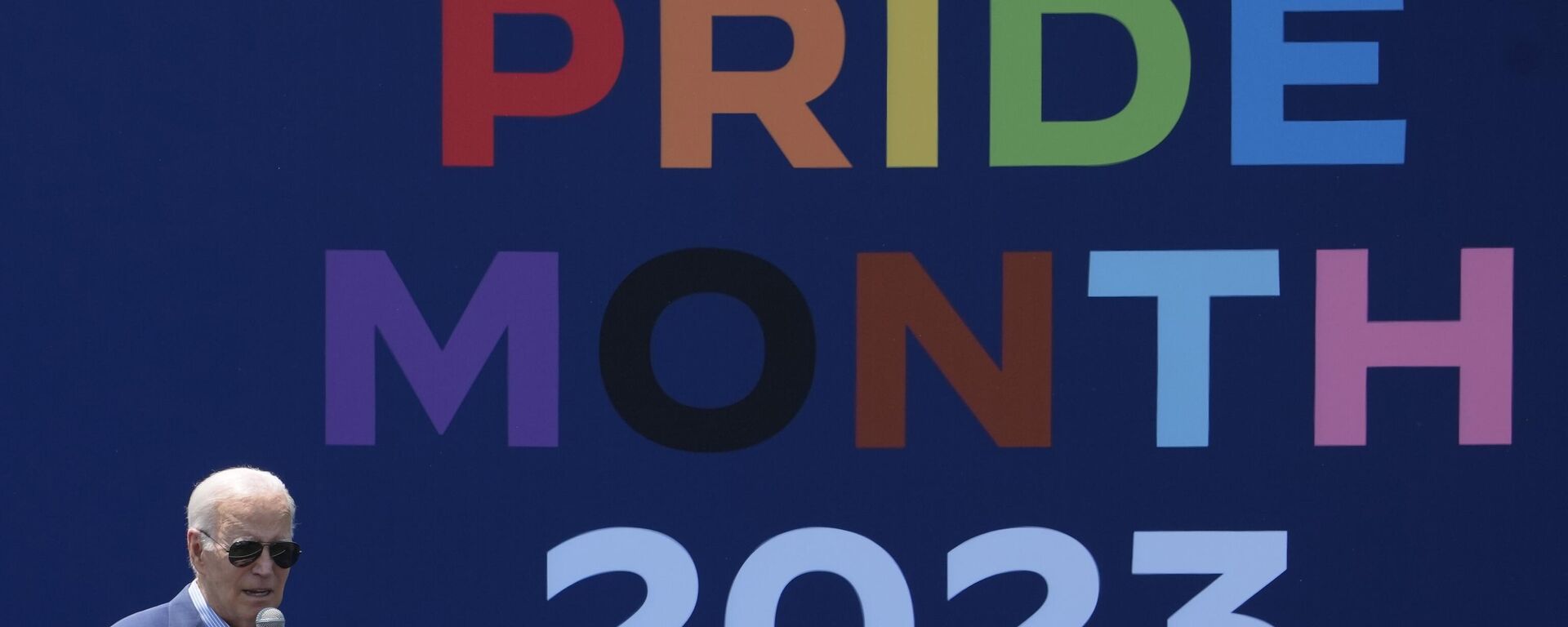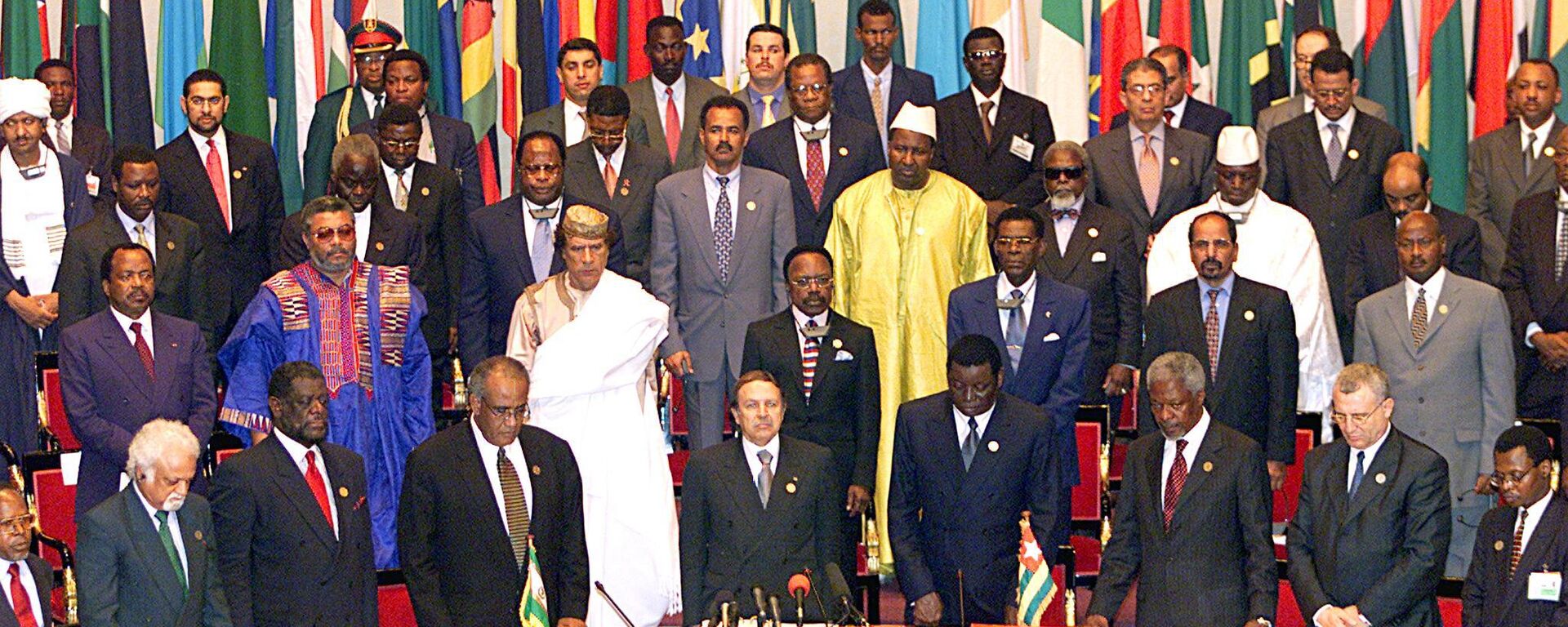https://en.sputniknews.africa/20230915/west-gives-democracy-bad-name-in-africa-imposes-anti-african-values-experts-1062132496.html
West Gives Democracy 'Bad Name' in Africa, Imposes Anti-African Values: Experts
West Gives Democracy 'Bad Name' in Africa, Imposes Anti-African Values: Experts
Sputnik Africa
On September 15, the world marks the International Day of Democracy, introduced by the UN General Assembly in 2007 to encourage governments all over the globe... 15.09.2023, Sputnik Africa
2023-09-15T18:10+0200
2023-09-15T18:10+0200
2023-09-15T18:26+0200
opinion
politics
west
culture
cooperation
west africa
military coup
democracy day
democracy
https://cdn1.img.sputniknews.africa/img/07e7/09/0f/1062139748_0:143:3134:1906_1920x0_80_0_0_55fc20df50c151238261287bc169b7f7.jpg
Although democracy in its essence is "inherently good", there are many distortions in terms of how it is implemented around the world, including in Africa, where Western values and interests are being imposed under the pretext of democratization and development, said Prof. David Monyae, director of the Centre for Africa-China Studies and the Confucius Institute at the University of Johannesburg, South Africa, in an interview with Sputnik Africa.According to the professor, the concept of democracy is not new to the continent, but the way it is presented today has been imposed by the West, which is pursuing its own interests without considering the needs of Africans. In particular, he pointed to the way democracy has developed in the West and spread beyond, with a "particular bias towards certain norms and values that are more Western than African."Monyae explained that the West introduced and imposed the concept of liberal democracy, which is directly linked to an economic dimension, so that it is impossible to freely develop one's economy without necessarily developing one's political liberalism. In this regard, he added, the West finances and supports those African politicians who are willing to advance the interests of Western nations. He noted that democracy in several African countries means favoring the West, which cooperates with the continent mostly to take advantage in terms of mineral exploitation and its own struggle against other global powers, including Russia and China.He drew an example from West Africa, noting that recent military coups in the region were "direct results of this kind of application of democracy."His remarks echoed those of Prof. Lere Amusan from the Department of Political Science and International Relations of Nigeria's Bowen University, who emphasized that the system brought by the West is not only political, but economic. According to Amusan, the West's policies toward Africa have put the continent in the position of producing what it doesn't consume and consuming what it doesn't produce.He stressed that this type of liberal democracy or liberal economic system imposed on African nations is "an extension of neo-colonialism."In particular, he mentioned the France-Africa partnership. He elaborated that the Paris government has made it mandatory for the francophone countries to deposit 80% of their foreign reserves in French banks.Promotion of Anti-African ValuesSpeaking about the so-called democratic values the West is promoting in Africa, Monyae pointed out that the most damaging ones are the individualistic values or market ones as they threaten the traditional communal way of thinking of Africans.Therefore, he emphasized, certain Western values are "are in themselves anti-African culture." He went on to say that the West is deliberately undermining and belittling African norms and values, cultures and civilizations in favor of their own culture that it is imposing. Western countries make the most of promoting this "democracy" as part of what they see as globalization, he said. In this context, globalization is seen as Westernization and the promotion of Western norms and values worldwide.Amusan, for his part, noted that the main problem within the concept of democracy and democratization is that it is being globalized. He explained that attempts to globalize a particular concept without looking at the local environment in which it will be implemented always face significant challenges, because what works in the Western world may not work in Asia, and "what is applicable in Asia may not be applicable in Africa." Therefore, the policy of introducing a certain type of governmental system such as democracy is causing major problems in Africa and may be one of the reasons why the continent is lagging behind in terms of development, the professor added. Amusan recalled that when Western ideas were imposed on Africa, many cultural activities and heritage were "bastardized" and consequently "suffocated." He further elaborated that even though the precolonial political and economic system in Africa wasn't perfect, it had certain traditional characteristics and values that could be useful in terms of promoting African interests on the global stage.He suggested that "there should be a meeting point" where the possible aspects of the Western idea and the African idea are integrated, so that the continent will eventually be on the path of sustainable development.Monyae also pointed out the need for certain changes in the current democratic systems on the continent so that they benefit their people.He emphasized that Africans are not against democracy, but want it to be relevant to the local context and reflect African norms and values. He noted that there are certain elements of tradition that Africa needs to get rid of, but "this should be a work in progress in terms of selecting the very best" of its traditional ways of governance and learning from others all over the world.A United Africa in Face of Western HegemonyAccording to Monyae, Africa should unite to advance its own interests on the global stage and not succumb to the influence of the West, thus ensuring the continent's development and independence in economic and political matters.Noting that the West is reluctant to abandon the current system because of its obvious advantages, he recalled that the continent has already faced serious resistance from the Western side. In particular, he pointed to the assassination of some African leaders who defended the interests of their countries.In the future, Africa will continue to face this kind of resistance because the West is still trying to prevent Africans from governing the continent and having "a form of governance system that is anchored in African norms and values."He explained that certain foreign powers are using some of the "most brutal methods" to take over legitimate leadership and systems of governance and put in place a leadership that advances their interests. However, he added, the people will eventually "prevail." Monyae stressed that many countries around the world are supporting Africa in its journey to develop democracy with African characteristics. Moreover, he said, "even within the Western world, there are progressive forces that are pro-Africa" and are working in solidarity with the continent to resist the "hegemonic Western neoliberal democracy."
https://en.sputniknews.africa/20230807/paternalistic-france-drives-pro-democracy-activists-in-niger-to-support-military-coup-1061137686.html
https://en.sputniknews.africa/20230618/undermining-democracy-us-sanctions-uganda-officials-over-anti-lgbtq-law-1060002778.html
https://en.sputniknews.africa/20230525/africa-needs-unity-more-than-ever-ethiopias-pm-says-1059473350.html
west
west africa
Sputnik Africa
feedback@sputniknews.com
+74956456601
MIA „Rossiya Segodnya“
2023
News
en_EN
Sputnik Africa
feedback@sputniknews.com
+74956456601
MIA „Rossiya Segodnya“
Sputnik Africa
feedback@sputniknews.com
+74956456601
MIA „Rossiya Segodnya“
politics, west, culture, cooperation, west africa, military coup, democracy day, democracy
politics, west, culture, cooperation, west africa, military coup, democracy day, democracy
West Gives Democracy 'Bad Name' in Africa, Imposes Anti-African Values: Experts
18:10 15.09.2023 (Updated: 18:26 15.09.2023) On September 15, the world marks the International Day of Democracy, introduced by the UN General Assembly in 2007 to encourage governments all over the globe to strengthen and consolidate democracy. On this occasion, Sputnik Africa sat down with political scientists to discuss the concept of democracy in Africa.
Although democracy in its essence is "inherently good", there are many distortions in terms of how it is implemented around the world, including in Africa, where Western values and interests are being imposed under the pretext of
democratization and development, said
Prof. David Monyae, director of the Centre for Africa-China Studies and the Confucius Institute at the University of Johannesburg, South Africa, in an interview with
Sputnik Africa.According to the professor, the concept of democracy is not new to the continent, but the way it is presented today has been imposed by the West, which is pursuing its own interests without considering the needs of Africans. In particular, he pointed to the way democracy has developed in the West and spread beyond, with a "particular bias towards certain norms and values that are more Western than African."
"And therefore, our understanding of democracy is that it's nothing new. It's something that has been on our continent, within our own culture. However, we are forced by circumstances, particularly in the post-Cold War era, to really follow strictly a Western democracy, which in the end does not provide the desired outcomes in terms of deliverables on the table," Monyae said.
Monyae explained that the West introduced and imposed the concept of liberal democracy, which is directly linked to an economic dimension, so that it is impossible to freely develop one's economy without necessarily developing one's political liberalism. In this regard, he added, the West finances and supports those African politicians who are willing to advance the interests of Western nations.
He noted that democracy in several African countries means favoring the West, which cooperates with the continent mostly to take advantage in terms of mineral exploitation and its own struggle against other global powers, including Russia and China.
"Most so-called democracies on the African continent are just there by name," he said, adding: "And therefore to be democratic is to favor the West. And people on the ground seem to have huge challenges with such notion of democracy."
He drew an example from West Africa, noting that recent military coups in the region were "direct results of this kind of application of democracy."
His remarks echoed those of Prof. Lere Amusan from the Department of Political Science and International Relations of Nigeria's Bowen University, who emphasized that the system brought by the West is not only political, but economic. According to Amusan, the West's policies toward Africa have put the continent in the position of producing what it doesn't consume and consuming what it doesn't produce.
He stressed that this type of liberal democracy or liberal economic system imposed on African nations is "an extension of neo-colonialism."
In particular, he mentioned the
France-Africa partnership. He elaborated that the Paris government has made it mandatory for the francophone countries to deposit 80% of their foreign reserves in French banks.
"So the implication of that is when these countries are starved of funds, they go back to Paris government and borrow out of their money at an interest. So what I'm trying to say in essence, is that at the end of the day, this type of policy continues to relegate Africa [...]," Amusan explained.
Promotion of Anti-African Values
Speaking about the so-called democratic values the West is promoting in Africa, Monyae pointed out that the most damaging ones are the individualistic values or market ones as they threaten the traditional communal way of thinking of Africans.
"Individualistics tend to favor the elite, the educated, those who are closer proximity to Western elites [...]. It tends to negate African Ubuntu where people really think in communities, communal understanding, which is our traditional way that I am – because you are, and my existence can not continue in your absence," he said.
Therefore, he emphasized, certain Western
values are "are in themselves anti-African culture." He went on to say that the West is deliberately undermining and belittling African norms and values, cultures and civilizations in favor of their own culture that it is imposing.
Western countries make the most of promoting this "democracy" as part of what they see as globalization, he said. In this context, globalization is seen as Westernization and the promotion of Western norms and values worldwide.
"We have been applying these forms of democracy for a while, since the end of the Cold War up to now, and we haven't seen any tangible results on the ground. And therefore, our own view is that the West gives democracy a bad name," Monyae highlighted.
Amusan, for his part, noted that the main problem within the concept of democracy and democratization is that it is being globalized. He explained that attempts to globalize a particular concept without looking at the local environment in which it will be implemented always face significant challenges, because what works in the Western world may not work in Asia, and "what is applicable in Asia may not be applicable in Africa."
Therefore, the policy of introducing a certain type of governmental system such as democracy is causing major problems in Africa and may be one of the reasons why the continent is lagging behind in terms of development, the professor added.
"The concept of one size fits all approach to liberal democracy is [the reason behind] a lot of problems that we are facing in Africa," Amusan said.
Amusan recalled that when Western ideas were imposed on Africa, many cultural activities and heritage were "bastardized" and consequently "suffocated." He further elaborated that even though the precolonial political and economic system in Africa wasn't perfect, it had certain traditional characteristics and values that could be useful in terms of promoting African interests on the global stage.
He suggested that "there should be a meeting point" where the possible aspects of the Western idea and the African idea are integrated, so that the continent will eventually be on the path of sustainable development.
Monyae also pointed out the need for certain changes in the current democratic systems on the continent so that they benefit their people.
He emphasized that Africans are not against democracy, but want it to be relevant to the local context and reflect African norms and values. He noted that there are certain elements of tradition that Africa needs to get rid of, but "this should be a work in progress in terms of selecting the very best" of its traditional ways of
governance and learning from others all over the world.
"Our understanding is that democracy, it must be an enriching concept as much as we are advancing democracy with African characteristics," he stressed.
A United Africa in Face of Western Hegemony
According to Monyae, Africa
should unite to advance its own interests on the global stage and not succumb to the influence of the West, thus ensuring the continent's development and independence in economic and political matters.
"A united Africa with 1.3 billion people has much more weight in terms of defending its interests, defending its voice within multilateral structures, and to have this push back ensures that Africa develops like all other parts of the world," Monyae emphasized.
Noting that the West is reluctant to abandon the current system because of its obvious advantages, he recalled that the continent has already faced serious resistance from the Western side. In particular, he pointed to the assassination of some African leaders who defended the interests of their countries.
"There has been a lot of resistance already. It's not something that is futuristic. If we go back to 1960, I think you're quite aware what happened to [first DR Congo PM] Patrice Lumumba. They murdered him. What happened to [Presidnet Thomas] Sankara in Burkina Faso and a number of African countries with certain African leaders, including [Ghanian President] Kwame Nkrumah himself, 1966, when he protected Africa's interests, Gnanaian interests," he elaborated.
In the future, Africa will continue to face this kind of resistance because the West is still trying to prevent Africans from
governing the continent and having "a form of governance system that is anchored in African norms and values."
He explained that certain foreign powers are using some of the "most brutal methods" to take over legitimate leadership and systems of governance and put in place a leadership that advances their interests. However, he added, the people will eventually "prevail."
"I foresee a clash in which more governments are going to be toppled. However, if we are to learn with events in West Africa, I think the people will prevail in the end. People are much more aware, they are much more educated," he noted.
Monyae stressed that many countries around the world are supporting Africa in its journey to develop democracy with African characteristics. Moreover, he said, "even within the Western world, there are progressive forces that are pro-Africa" and are working in solidarity with the continent to resist the "hegemonic Western neoliberal democracy."
"Africa needs to have relationships with a number of countries all over the world, as the AU has a strategic partnership strategy where it works with a number of countries [...] that are at an advanced stage in terms of development, in terms of governance systems, that Africa could draw on, certain elements from all over the world, however, led by Africans with African norms and values and governance tradition," he pointed out.




